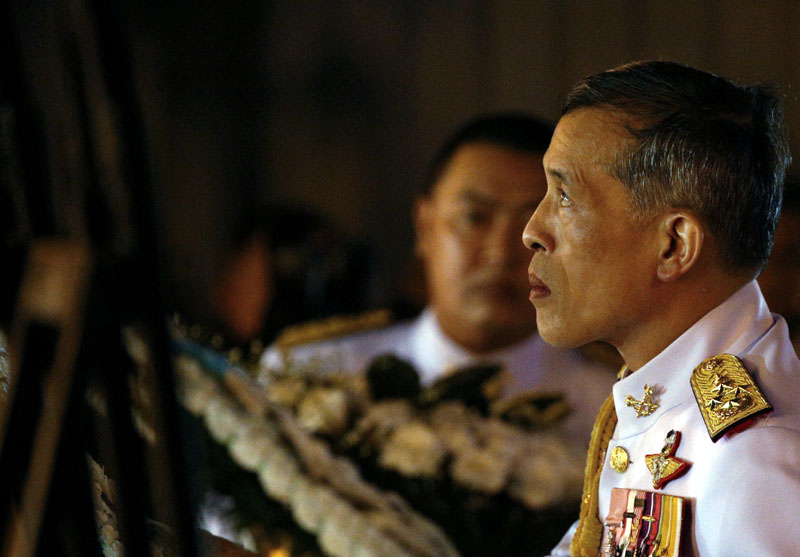Thailand's parliament to invite prince to become new king
Thailand's parliament is expected to invite Crown Prince Maha Vajiralongkorn to become the new king on Tuesday, lawmakers said, more than one month after the death of his father, revered King Bhumibol Adulyadej.
King Bhumibol, who was the longest-serving head of state in the world when he died at the age of 88, played a stabilizing role during decades of often-violent conflict in Thailand.
The crown prince's invitation to become monarch will likely allay some public concerns that the succession might not go according to plan.
Prime Minister Prayuth Chan-ocha said last month the prince had asked to delay the succession in order to grieve with the public.
The prince has not spoken publicly since his father's death and news about his plans has come through the government.
According to procedures outlined in the constitution, the cabinet, which meets once a week on a Tuesday, will ask the president of parliament to invite the crown prince to become king. The prince will then have to accept the invitation in order for him to be proclaimed king.
The prince, who is in Germany, will fly back to Thailand later this week so an audience with the president of parliament can then take place, sources familiar with the matter told Reuters.
"Today we are waiting for the government to send a letter to parliament. We expect this to happen imminently," a member of the National Legislative Assembly, who declined to be named because he was not authorized to speak to the media, told Reuters.
In a departure from the usual Tuesday cabinet meeting, members of the cabinet and the junta met jointly at Bangkok's Government House on Tuesday, according to a Reuters reporter at the scene.
Prayuth, who took power from an elected government in a 2014 coup, has said that a year-long mourning period for the king will not affect a general election the junta has promised to hold in 2017.
The military, which has traditionally portrayed itself as he ultimate defender of the monarchy, is widely expected to remain a key power broker even after the 2017 general election.
A Thai lese-majeste, or royal insult, law criminalizes anything that is deemed to be an insult to the monarchy.
The law has curbed public talk about the succession or criticism about the crown prince, who has spent much of his adult life abroad and does not command the same level of devotion as his father.






